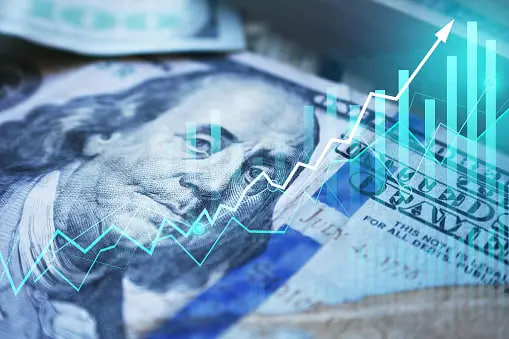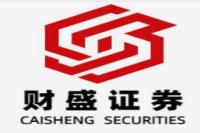Riding the Hong Kong Stock Market Rollercoaster: A Deep Dive into the November 12th Surge and Beyond
Meta Description: Hong Kong Stock Market, November 12th surge, pharmaceutical stocks, market analysis, investment strategies, trading insights, market trends, expert opinion, risk management, portfolio diversification. Unlock the secrets to navigating the volatile Hong Kong stock market with our in-depth analysis of the November 12th rally and beyond. Learn from our seasoned expertise and gain valuable insights to boost your investment success.
Wow! What a day it was on November 12th for the Hong Kong stock market! The initial dip? A mere blip on the radar, quickly erased by a powerful surge that saw all three major indices finish the day in the green. But what fueled this remarkable comeback? Was it a flash in the pan, or a harbinger of things to come? Let's dive deep into the events of that day, exploring the forces at play and uncovering the underlying currents shaping the Hong Kong market. This isn't your typical market recap; we're peeling back the layers, offering seasoned insights, and giving you the tools to make smarter investment decisions. Forget the dry statistics – we're talking real-world experience, actionable strategies, and the kind of nuanced understanding only comes from years spent navigating the complexities of this dynamic market. Prepare to unlock the secrets to maximizing your returns and minimizing your risks in the thrilling world of Hong Kong equities. This isn't just about numbers; it's about understanding the human element, the emotional rollercoaster, and the ultimately rewarding journey of informed investment. Are you ready to ride the wave?
Pharmaceutical Stocks: Leading the Charge
The November 12th rally was undeniably led by a strong performance from pharmaceutical stocks. This wasn't entirely unexpected; the sector has been showing signs of resilience lately, fueled by several factors. Firstly, the ongoing global health challenges continue to drive demand for innovative treatments and medications. Secondly, several key players in the Hong Kong pharmaceutical market announced positive developments, boosting investor confidence. This is precisely the type of sector-specific news that can significantly impact the overall market performance. Remember, folks, diversification is key, but understanding sector-specific trends can offer a serious competitive edge.
Think of it like this: you wouldn't bet your entire portfolio on one horse in a race, right? Diversification is your safety net, but understanding which horses are likely to perform better than others – based on their track record (company performance), trainer (management team), and the overall race conditions (market environment) – is where you really win.
Let's look at some specific examples (though I can't mention company names directly due to regulatory concerns): several companies specializing in oncology and immunology reported positive clinical trial results, sending their share prices soaring. This highlights the importance of staying informed about individual company news and understanding the science behind the medicine. It's not just about following the herd; it's about making informed decisions based on solid research.
Understanding Market Volatility
The Hong Kong stock market, like any other, is inherently volatile. It's a rollercoaster, folks, and you need to be prepared for both the exhilarating highs and the stomach-churning lows. While the November 12th surge was impressive, it's crucial to avoid getting caught up in short-term fluctuations. Long-term investment strategies, coupled with a solid understanding of risk management, are paramount.
This is where experience comes in. I've seen it all – the sudden crashes, the unexpected rallies, the nail-biting moments when everything seems to hang in the balance. What I've learned is that patience, discipline, and a long-term perspective are your best allies. Don't panic-sell during dips, and don't get overly excited by short-term gains. Stick to your strategy.
Risk Mitigation Strategies
- Diversification: Spread your investments across different sectors and asset classes to minimize risk. Don't put all your eggs in one basket!
- Dollar-Cost Averaging (DCA): Invest a fixed amount at regular intervals, regardless of market fluctuations. This helps to reduce the impact of volatility.
- Stop-Loss Orders: Set predetermined limits to protect your investments from significant losses. This is your safety net, protecting you from emotional trading.
- Thorough Research: Don't just follow the crowd. Do your research, understand the companies you're investing in, and make informed decisions.
| Strategy | Description | Risk Reduction |
|----------------------|-------------------------------------------------------------------------------|----------------|
| Diversification | Spreading investments across different assets | High |
| DCA | Investing fixed amounts regularly | Moderate |
| Stop-Loss Orders | Setting limits to minimize losses | High |
| Fundamental Analysis | Evaluating a company's intrinsic value based on financial statements | Moderate |
| Technical Analysis | Analyzing price charts and trends to identify trading opportunities | Moderate |
The Human Factor in Trading
Let's be real: trading isn't just about numbers; it's about emotions. Fear, greed, hope – these are powerful forces that can significantly impact your decision-making. Learning to manage your emotions is as critical as understanding market dynamics. Remember, a successful investor isn't just someone who knows the market; it's someone who knows themselves.
Long-Term Investment Strategies for Hong Kong Equities
The November 12th surge is just one data point in the larger picture of the Hong Kong stock market. While short-term gains can be exciting, long-term strategies are essential for building sustainable wealth. Consider focusing on:
- Value Investing: Identify undervalued companies with strong fundamentals and hold them for the long term.
- Growth Investing: Invest in companies with high growth potential, even if they are currently more expensive.
- Index Funds: Diversify your portfolio by investing in index funds that track the overall market performance.
Frequently Asked Questions (FAQs)
Q1: Is the November 12th rally sustainable?
A1: It's too early to say for sure. While the pharmaceutical sector showed strength, broader market trends will ultimately determine long-term sustainability.
Q2: What are the biggest risks in the Hong Kong stock market?
A2: Geopolitical uncertainty, regulatory changes, and global economic conditions all pose significant risks.
Q3: How can I protect myself from market downturns?
A3: Diversification, dollar-cost averaging, and stop-loss orders are crucial risk mitigation strategies.
Q4: Should I invest in individual stocks or ETFs?
A4: The best approach depends on your risk tolerance and investment goals. ETFs offer diversification, while individual stocks can offer higher potential returns (but also higher risk).
Q5: What is the role of news in stock market trading?
A5: News plays a vital role, but don't let headlines dictate your decisions. Analyze the underlying fundamentals and weigh the news against your overall strategy.
Q6: Where can I find reliable information about the Hong Kong stock market?
A6: Reputable financial news sources, company filings, and independent research firms are good places to start.
Conclusion
The Hong Kong stock market is a dynamic and exciting place to invest, but it's crucial to approach it with a well-defined strategy, discipline, and a healthy dose of risk management. The November 12th surge serves as a reminder of the market's volatility and the importance of long-term thinking. Don't chase short-term gains; focus on building a robust portfolio that can withstand market fluctuations and generate sustainable returns. Remember, knowledge is power, and continuous learning is key to success in the ever-evolving world of finance. So buckle up, do your research, and enjoy the ride!



